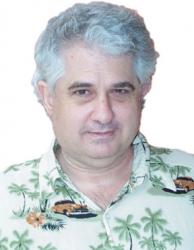Local Experts Say There Are Some Things You Want To Do And Some Things You Don’t
By Brad Goins
You’ve just gotten a windfall. Out of the blue, a sizable sum of money has come your way.
The windfall may have come through an inheritance, an insurance payout, a retirement plan distribution, the sale of a business or possibly even a winning lottery number or an extraordinarily good run at a casino.
Suddenly, you find yourself with several hundred dollars — or even several hundred thousand dollars — that you never expected to have. What do you do?
An even bigger question is: what do you avoid doing?
There seems to be a human tendency to make unwise, and even potentially dangerous, choices when one finds oneself on the receiving end of a windfall.
As Courtney Griffith of the Griffith Financial Group puts it, “unfortunately, people fail to use their newfound wealth wisely and are left with little or no savings and usually with lots of regrets. Most people squander their newfound money during the first days, weeks and months because they make impulsive decisions to quit their jobs, take exotic vacations or buy a new expensive home or car.”
One easy and quick way to answer the question What’s a better way to proceed? is to provide a list of eight easy dos and don’ts for handling a windfall that was prepared by Matthew Shaheen, a financial advisor at Terrell & Associates at 625 West College. These dos and don’ts are easy to understand and their advice is easy to follow.
Shaheen advises:
Do: Put some aside for a rainy day.
Don’t: Blow it all on stuff that you really don’t need.
“Don’t let your impulses run wild with your new-found wealth. Spend some, yes. But it never hurts to add a little to the emergency fund or savings account.”
Do: Pay down debt.
Don’t: Pay down good debt.
Shaheen explains: “Paying down a credit card that has a high interest rate is a good idea. Paying down your mortgage that has a 3.5-percent interest rate may not be your best bet in your best interest.”
Do: Replace old appliances.
Don’t: Buy the most expensive refrigerator.
“If you have a stove that’s on its last leg, by all means replace it. But that doesn’t mean you need to buy a gourmet kitchen.”
Do: Treat yourself.
Don’t: Forget upkeep.
“If your newly found funds can buy you a brand new jet ski, that’s great. But don’t forget about ongoing maintenance and additional expenses associated with your new toy.
Just as practical, but even shorter and sweeter, is the following common sense advice from another local financial adviser:
“If you come into a windfall, whether large or small:
• Avoid spending it right away.
• Take a look at your savings to be sure you have a sufficient amount.
• Go over consumer debt and consider paying off anything with a high interest rate.
• Once those items are satisfied, consider additional retirement savings, life insurance, and a college savings plan.
• Consult with a Financial Planner to assist you with creating a financial plan for all these needs.”
These suggestions come courtesy of Butch Ferdinandsen CFP, CLU, ChFC, CRPS, CRPC of Ferdinandsen Financial Group.
Ferdinandsen is more explicit than any of the other analysts about targeting long-term goals that relate to major stages of life, such as college education and retirement.
Mark D Eckard, CFP, of Abate & Eckard Financial Advisors, adds a bit more simple, practical advice that relates to discrete tasks than one should be able to perform pretty easily:
“Keep some cash. Everybody needs an emergency fund.”
“Decide how much to share and with whom … family, church, alma mater, etc.”
The Role Of Planning
When it comes to windfalls, a theme of all financial advisors seems to be this: before you spend everything, stop and take the time to make out a detailed plan. If you make such a plan, says Eckhard, “you handle your money, instead of your money handling you.”
Financial planning is hard for most people. How does one go about it? Eckard has quite a bit of practical advice:
“Don’t rush into anything. Take the time to write down your thoughts. This will help you clarify things and determine what is important to you.”
You may decide you want to reduce some of the stress of planning by consulting with professional advisors when you plan. Eckard advises, “find professionals you trust and can work with; talk to several before deciding. FINRA provides free background checks on financial advisors. Don’t be afraid to check them out.”
Local advisor Chris Craven, who is affiliated with New York Life Securities, concurs with Eckard on the position that those who have inherited funds have ways to help them determine which financial advisors are trustworthy.
“No matter what size the amount is, everyone needs a good and honest financial advisor,” says Craven. “Working with someone that has your best interests at heart can help you build wealth for the future. There is a website called www.brokercheck.org. This site will give you a background on any financial advisor [in a variety of areas], from time in the business, customer complaints and states of license.”
Gathering Information
For the most part, local investment advisor Sam Hebert agrees with the general information about windfalls presented thus far. But he does start with a somewhat different approach.
Hebert suggests that before the recipient of the windfall spends any money at all, he should immediately stop and devote a fairly long period both to planning and information-gathering.
So that he’ll be free to do all this work, the recipient will begin by putting all his new funds in a bank account temporarily. At this point, his job becomes to “make assessments of the proper thing to do with it.”
He’ll start by assessing all his debts and the interest rates he’s paying for each one.
He will determine whether he has a “3-6 months emergency stash.”
He will assess his risk tolerance. How risky an investment can he “withstand … emotionally and financially”?
He will assess his job security.
He’ll assess his debt-to-income ratio.
Once all this information has been carefully gathered and noted down, the recipient should choose a trusted financial advisor and “sit down with someone who can tell him the pros and cons of his situation.” Then he’ll be in a position to make a level-headed and informed decision about how he wants to proceed with his funds.
Long-Term Planning
Recipients of windfalls can use hacks to ensure they take the time to engage in long-term planning about their money. Griffith says that she recommends her clients “use a portion of the windfall to reduce debt and pay bills and leave the rest in a money-market account for at least 6 months. I know this requires a great deal of discipline, but you will avoid making irrational decisions, and will give yourself time to evaluate your options and develop a solid long-term plan. Most people believe that a large sum of money is the answer to all their problems. But it often creates new anxiety and stress.”
One of the challenges in long-term planning, says Griffith, is, “you’ll have friends and relatives offering all types of financial advice. They may have your best interests at heart, but their advice might not help you achieve your financial goals. The best thing to do is to sit down and review your existing holdings, expected expenses, risk tolerance and your tax situation. Once you’ve done this, give a trusted financial advisor a call and that person will help you craft a long-term plan that will help you achieve your financial goals.”
Eckard advises that those who are doing long-term planning use their new money to “accomplish the things [they] want to accomplish, taking into account [their] time horizon” for doing these things.
Investing In The Stock Market
Should money from a windfall be invested into the market all at once?
Griffith says, “This would depend on the client’s financial goals, because some clients might need only fixed-income type investments and no stock market exposure.”
For those who want or need stock market exposure, she “would recommend dollar-cost averaging into the market. This doesn’t guarantee a profit or protect against a loss, but it can help even out the market’s peaks and troughs. It also helps a client resist the urge to try to time the market.”
















Comments are closed.